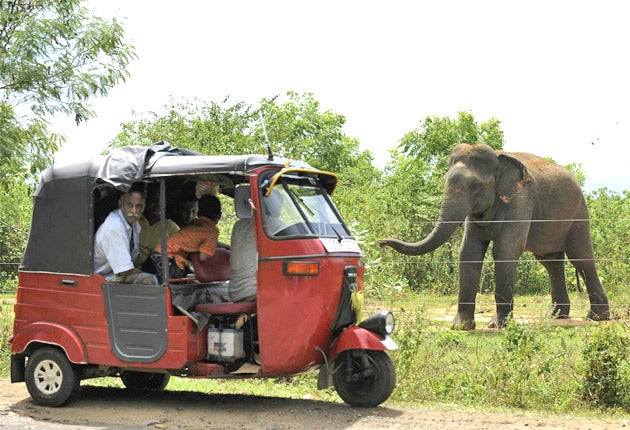Sri Lankan government vets go on strike in protest over treatment of wild elephants

The entire team of Sri Lanka's government wildlife vets has gone on strike amid mounting controversy over an elephant conservation plan that has led to increased clashes between the animals and villagers.
The vets say the island's remaining population of wild elephants is being pushed into ever smaller spaces as the government was failing to prevent the encroachment of human communities.
Last year, conflict between humans and the animals led to the deaths of 50 people and at least 228 elephants. Last weekend, two elderly people were killed in clashes with elephants; a 75-year-old man riding a bicycle was attacked and killed while a 67-year-old man was crushed to death at his home.
"There is no proper management of wild elephants who are being pushed into narrow habitats as the government allows people to encroach into traditional elephant homelands," Vijitha Perera, secretary of the vets' union, told the Agence France-Presse.
He said the five-day strike had been called to draw attention to the situation and to the need to fill eight vacancies for vets within the department – overseen by a brother of President Mahinda Rajapaksa – and formalise a career structure. The vets are responsible for tranquilising and treating wild animals, among other tasks.
He added: "At least four elephants die each week due to this conflict. There is a shortage of food and water for elephants living in the wild in narrow corridors between villages."
Trained elephants are still used for labour in Sri Lanka. Yet the population of wild animals has dwindled to about 4,000 from an estimated 12,000 in 1900. Ananda Wijesooriya, the Sri Lankan wildlife department director general, said cattle were also encroaching on elephant territory, reducing access to water and eating limited food resources. "We are working on a cabinet-approved plan to resettle elephants in nature reserves, but there is still not enough land and there is nothing I can do," he said.
Elephants need an average of 150kg of food a day and are forced to roam further afield for food because of the destruction of forest, according to the World Wide Fund for Nature. It said a single elephant can destroy a farmer's smallholding in one feeding raid.
Join our commenting forum
Join thought-provoking conversations, follow other Independent readers and see their replies
Comments
Bookmark popover
Removed from bookmarks